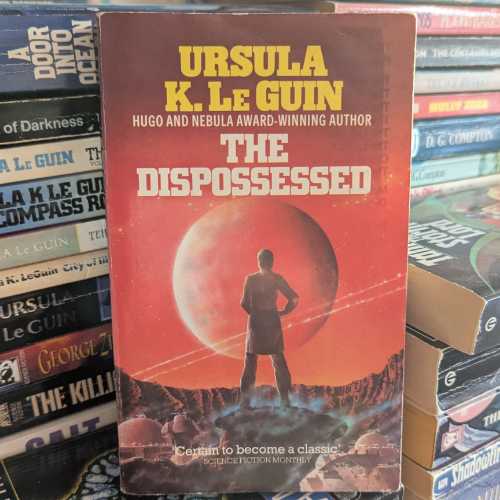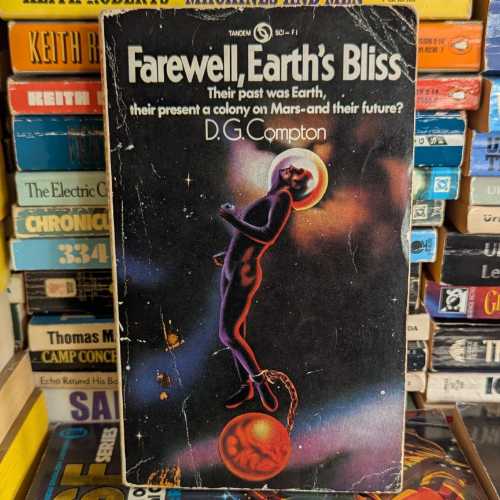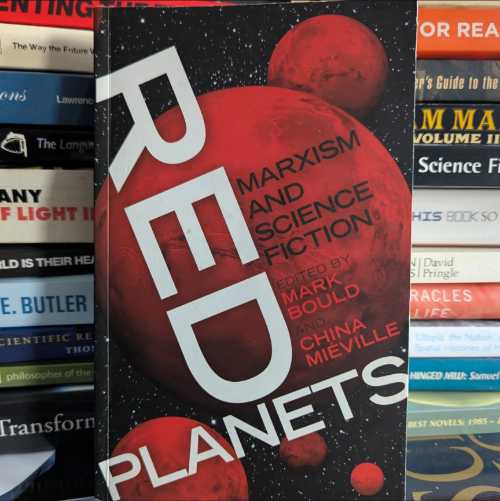The Dispossessed
★★★★★The world of Urras is a capitalist paradise, tainted by its inequality. The moon of Anarres is an anarchist utopia, infected by bureaucracy born of famine. Shevek, an Anarresti physicist, is the first visitor to Urras in 170 years, hoping to reunite the two worlds with his unified theory.
Alternate chapters recount a converging narrative of Shevek’s past life on Anarres and his present on Urras. We grow to understand the bleak conditions of his homeworld – a desolate dustbowl where scarcity mandates continual hard labour from an exhausted population. What emerges is a utilitarian culture where anything that doesn’t serve the collective need is considered waste, akin to excrement. Shevek’s physics is rejected as frivolous, born of egotistical desires – his individualistic freedom to explore his passion is at odds with his collective obligations to society, amplified by a bureaucracy born of privation.
On capitalist Urras, he’s welcomed with open arms to work on his physics without social obligation. But the easy plenty of the elite is built upon the backs of the proletariat, riven with sexism and greed. As Shevek, the propertyless anarchist, slowly comes to comprehend the psychology of acquisition, he realises his freedom is a mirage, and his physics, rather than unifying, is valued only as another lever for exploitation.
Through Shevek, we experience the benefits and flaws of both societies. It’s an atmospheric mood piece – an intimate life story. There’s a timelessness to the prose, a focus on journey rather than destination, accreting a rich picture of societies, individuals, and communities. Shevek’s physics of linear and cyclic time is mirrored in his many journeys and his inevitable return – to community, to work, to family. It’s a story about finding your path through life, your meaning, your contribution, your own continuous revolution.
This is a slow political book, dense with socio-economic debate, low on action, not for everyone. But for those seeking anthropological SF, novels that urge us to question our own society, this will be a rich experience.




